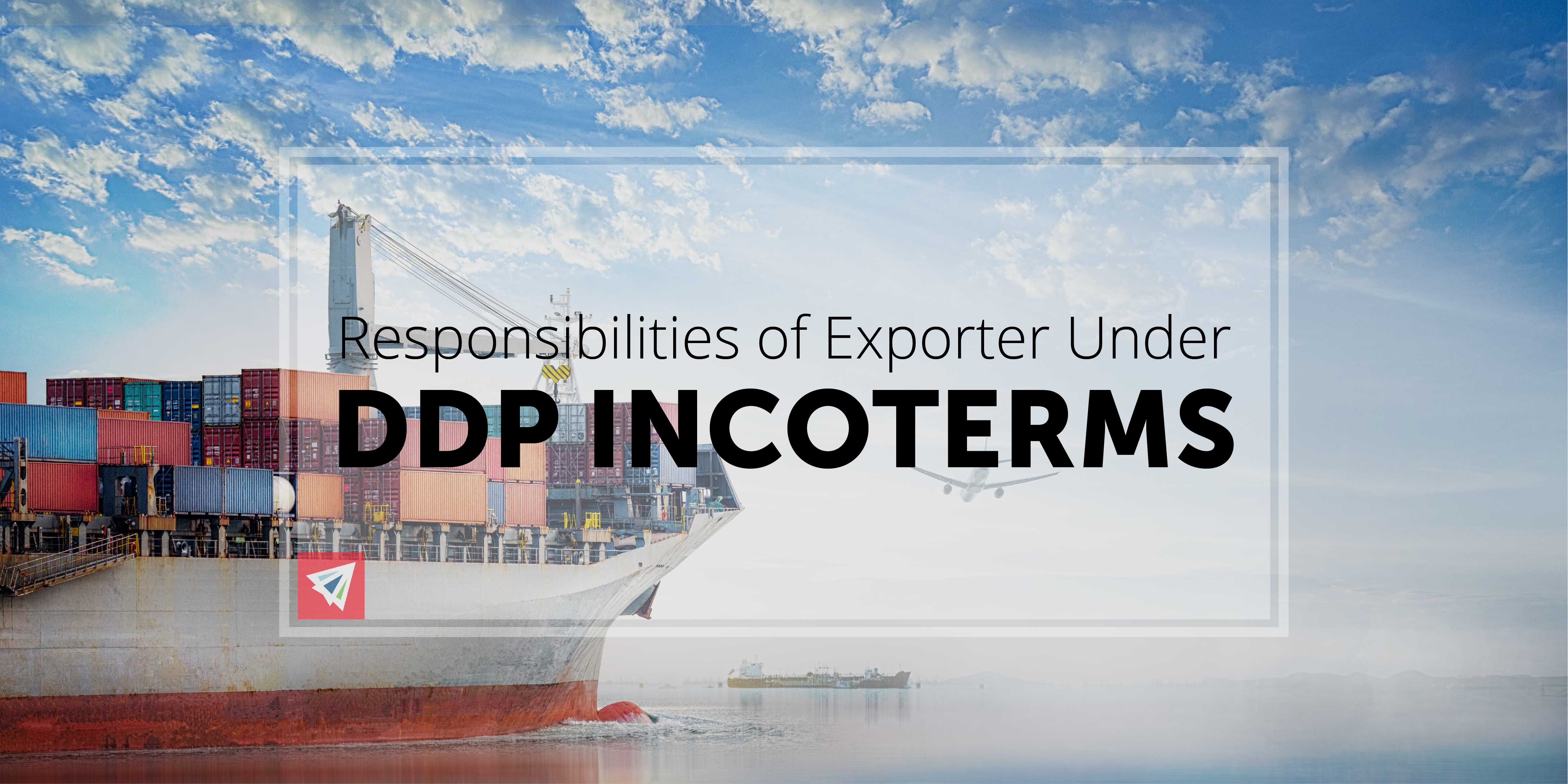Incoterms are a huge area of misunderstanding among U.S. importers and exporters. However, they play a crucial role in defining the responsibilities and risks assumed by local and foreign parties in any international shipping transaction. Having a good handle on Incoterms can help you to lower your company’s costs, shipping risk, and put more control in the hands of your company’s decision makers.
One of the most commonly used incoterms is DDP, or Delivery Duty Paid. Any short Google search on Incoterms will render images displaying DDP at the bottom of an incoterm list in regards to responsibilities. While incoterms are used to help ease the burden of cost and risk associated with shipping, DDP actually places all the responsibility in the hands of the seller or shipper of the goods.
Exporter Responsibilities under DDP Incoterm
While any shipment will have its own unique implications as to the responsibilities of involved parties, here are a few things that you or your supplier should be aware of when dealing with the DDP Incoterm:
1) Costs and Payment
As previously stated, the DDP Incoterm leaves the shipper responsible to pay for nearly everything. Depending on the situation, you may have different variations of the DDP agreement worked out with your customer, but it’s safe to assume that you as the shipper/exporter will be held responsible to pay for all carriers associated with the delivery of the cargo from origin to destination.
Make sure you understand this before signing any paperwork.
2) Risk
While you have (hopefully) insured your cargo before it reaches any carriers, understand that under DDP terms it is the responsibility of the shipper/seller/exporter of the goods to assume all risk of the cargo while in transit.
Remember, the shipper or exporter is not defined by location, but rather transactional responsibility. In other words, if you as a U.S. company are importing goods from your supplier overseas, the overseas company will be responsible for all risk associated with the shipment. However, if you are exporting goods as a supplier to someone overseas, then you will be held responsible for the cost and risk of the shipment in transit.
3) Clearing Goods for Export
This should go without saying, but under DDP terms, the shipper is responsible for clearing the goods for export from the U.S. To be safe, screen all parties related to the transaction (buyer, foreign freight forwarders and shipping agents, etc.) to ensure none are on the U.S. governments list of restricted persons. To keep your shipment moving smoothly, you will also want to ensure that the product does not require an export license. This will help you avoid delays at customs and steep fines.
Conclusion
DDP Incoterms aren’t for everyone. They place the responsibility of paying for costs associated with cargo transportation entirely upon the seller/shipper/exporter of the goods. In some instances, the additional control is helpful, however, exporters should be aware that under DDP Incoterms, they are responsible for: paying for transit of cargo, assuming all risk associated with the cargo’s transportation, and clearing the goods for export.
There are a whole myriad of implications for DDP shipping terms, however, it’s important to make sure you are in the know for these few crucial elements.
If you are interested in learning more about incoterms, need help with a current situation, or are curious about related topics, please reach out to a team member on our site, or enter your details and email in the chat box below and we will be sure to connect with you as soon as possible!
